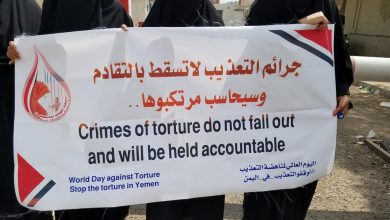Bin Dagr: Seats for the ‘Hesitant’ to Join the National Coalition are Vacant”
Ahmed Obeid Bin Dagr

Yemen Monitor/ Newsroom
On Tuesday, the Chairman of the Shura Council and the Supreme Council of the National Coalition for Components and Political Parties, Ahmed Obeid Bin Dagr, stated that the seats of those he described as “hesitant” to join the coalition are vacant and will not be filled by anyone else.
This statement was made during a ceremony in the temporarily declared capital of Aden to launch the national political coalition, which includes 21 political parties and components.
Bin Dagr said, “I call on those who have hesitated to join this national coalition to take their seats in it. These are vacant seats and positions that will not be filled by anyone else. We must all, leaders and components, continue the dialogue with them. There are common denominators that we see as suitable for dialogue with them.”
On Monday, the STC announced its non-participation in the coalition. Today, dozens of its supporters gathered in front of the hotel hall where the launch ceremony took place to express their rejection of the coalition.
Earlier, the National Coalition for Yemeni Political Parties and Components, opposing the Houthi group, was officially launched under the chairmanship of Ahmed Bin Dagr in the temporarily declared capital of Aden.
In the launch statement, the coalition announced a political program to achieve a number of goals, including “restoring the state and unifying national forces to confront the rebellion and end the coup, resolving the southern issue as a key issue and a key to addressing national issues, and establishing a special framework for it in the final political solution.”
Its political program also includes “preserving the republican system within the framework of a federal state, in a way that meets the aspirations of the people of all governorates, preserving the sovereignty, independence, and territorial integrity of the republic, agreeing on a shared vision for the peace process, and supporting state authorities to unify their decision and extend their influence over all national territory.”
It also included “strengthening Yemen’s relations with neighboring countries, the Arab world, and the international community, combating corruption, extremism, and terrorism, rejecting discrimination in all its forms, resuming political life in all governorates of the republic, rejecting the imposition of projects and political visions by force, supporting the government in its economic program to provide services and alleviate the suffering of citizens, and the return of all state institutions to work from the temporary capital of Aden.”




